Dr Holly Andrews / Anaesthetic Trainee / North Wales
In November 2021, anaesthetic trainee and adventure medic editor Dr Holly Andrews returned to Lesvos to volunteer at the medical clinic of Mauravani refugee camp. In this article Holly reflects on what she has learnt from her experiences, and explains why these volunteer roles and advocacy for refugees continue to be so vital.
One memorable shift
It was approaching midnight on a warm Saturday night in the medical clinic within Mauravani, a refugee camp on the island of Lesvos. The team and I were tying up our consultations with the last few patients and I took the opportunity to reflect on what a gentle introduction my first shift as team leader had been.
These reflections were paused abruptly by an alert on the radio notifying the team of a patient arriving at the clinic gates looking severely unwell. The team sprang to action, taking the patient into our ‘red’ resuscitation room in a converted portable MRI unit. With a history of a ‘hit and run’ incident, extensive chest and abdominal bruising, and an initial BP of 80/40, I began to take the necessary steps of organising a transfer to the town hospital, while the team resuscitated the patient.
Just 5 minutes later, as I was engaged in a fraught 3-way translation with Greek ambulance control, our support crew lead opened the gate to a heavily pregnant woman. Propped up by her husband on one side and our gate post on the other, she was breathing heavily through intense contractions. It was obvious she didn’t have long before the need to push would become overwhelming and we would be welcoming a new life into the world, something we all knew would not be ideal with our limited resources.
Such thoughts were interrupted mere minutes later as the head began to crown. With only a scarf held around her, providing minimal privacy, this brave woman delivered her baby standing at the gate of our clinic. What happened next involved a cacophony of interactions with local ambulance drivers and balancing of cultural preferences with our medical knowledge, all the while keeping an eye on a pack of street dogs who were a little too interested in the proceedings.
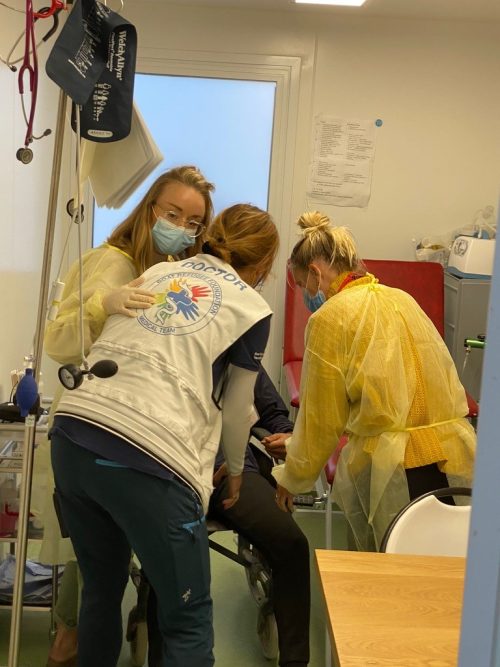
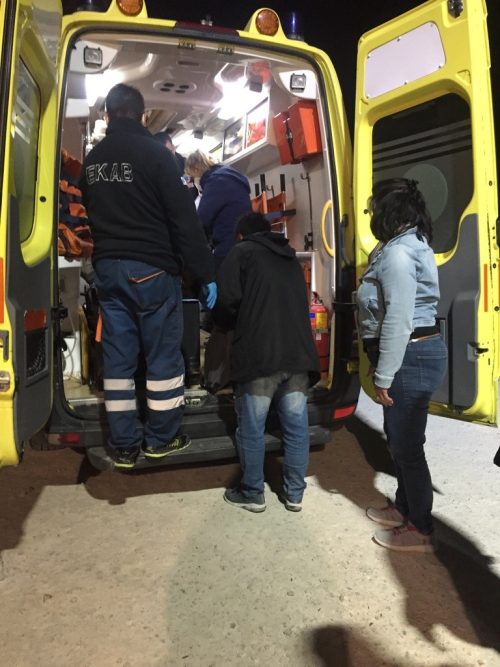
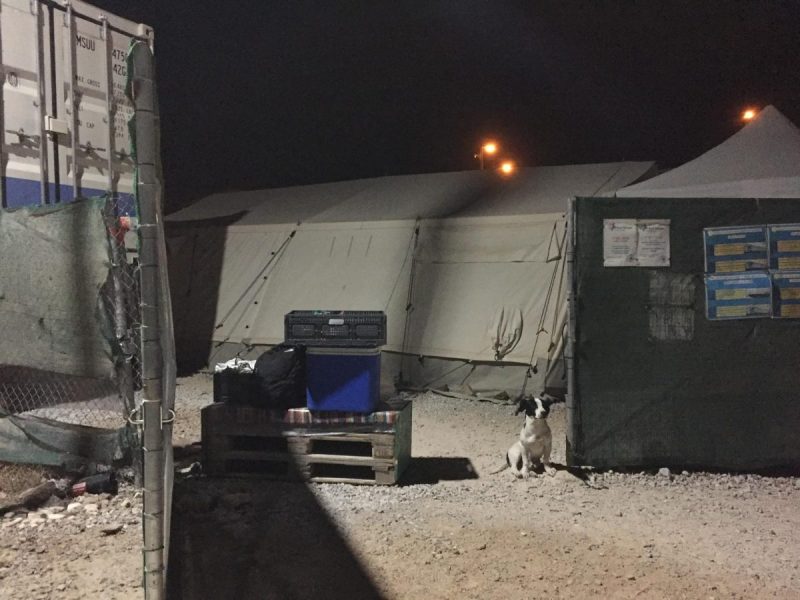
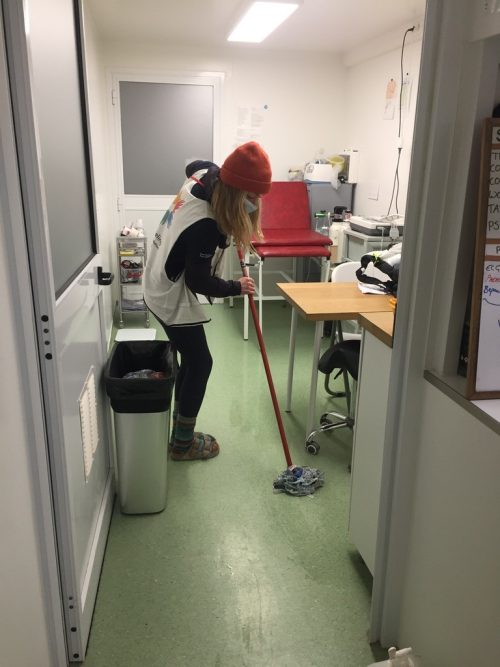
Clinic life
Our medical team had assembled here from Afghanistan, the UK, Cameroon, Iraq, and the Netherlands. We worked together to provide safe medical care and support to a vulnerable group of people, thousands of miles from home and looking for safety and hope in Europe. Images and sound bites of our small team dealing with that night’s events often spring to mind, making me smile with the memory of solidarity and one of the most humbling shifts of my career.
Writing this article while sitting comfortably in a coffee shop back in the UK, I risk getting caught up in journalistic sensationalism. That Saturday night shift was certainly at the pointier end of emergency field medicine, but in reality most shifts were much calmer, treating minor injuries and primary care complaints. It was during these latter shifts that I came to realise that volunteering in this sort of setting required more than merely practising medicine.
Together with a translator, often living in the refugee camp themselves, we saw around 20-30 patients per shift. It didn’t take long to become acutely aware, from both patients and colleagues, of just quite how difficult is it to exist in this setting. Refugees continue to live with constant uncertainty for their futures; many of the goalposts for gaining asylum in countries where they hope to work and rebuild a life change constantly. Some refugees describe this limbo as ‘political torture’. Being kept in the dark about the legal and financial processes of seeking asylum, alongside the ever-changing rules and regulations regarding movement in and out of the camp, foster a persistent feeling of unrest, confusion, and uncertainty.
Recent media coverage of the surge of Channel crossings has served as a reminder of how dangerous migration routes can be for refugees. All the people that I treated in Lesvos had risked their life to arrive on the island. It seemed to me that even the small pieces of daily humanity and care that we all take for granted were missing from these peoples’ lives. At the clinic, we could provide a stable place where everyone was treated as equals and listened to. The clinic tent had had regular opening hours, which we adhered to, hoping that this provided a feeling of stability and reliability, amidst the instability and, at times, chaos. Through taking time to offer a warming blanket or a cup of tea to those in the waiting room, blowing up balloons with children whilst their parents were being treated, or simply sitting with and giving time to each patient, we hoped to create an atmosphere of care and community.
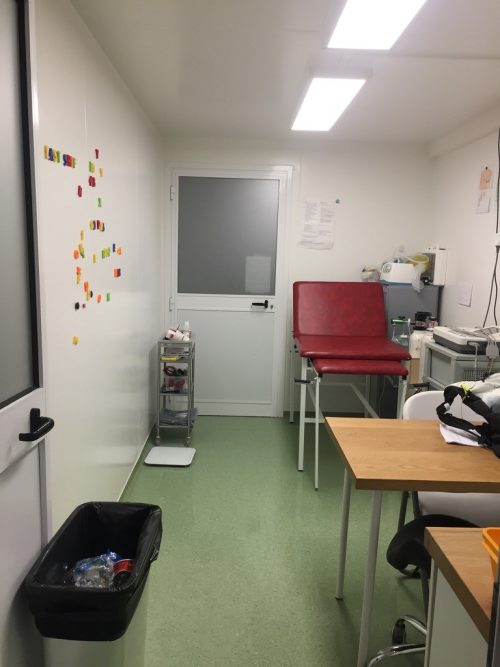
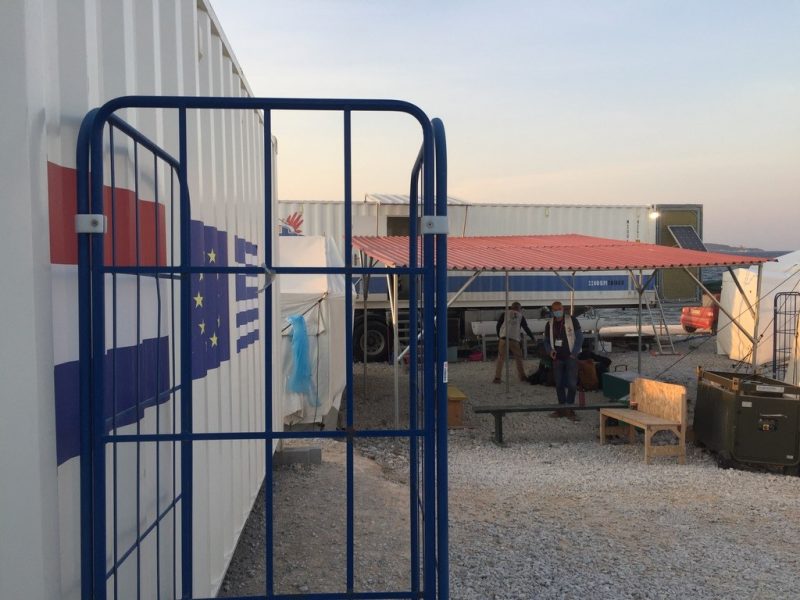
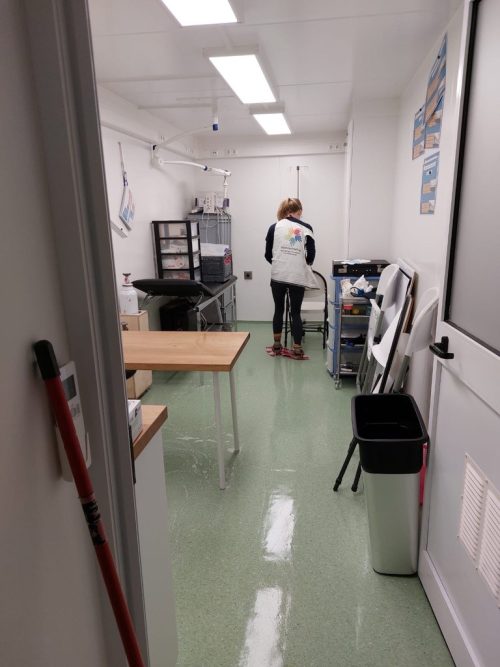
Reflections
My time in Lesvos has certainly fuelled my desire to volunteer in similar roles in the future. It has provided me with another building block of experience to what is a very complex and ever-evolving wall of knowledge. Although my presence only contributed to the continued turning of a very small cog in a much larger operation, I hope that the sum of all these small inputs will result in a global shift in attitudes towards, and conditions for, all refugees.
Working in this setting has challenged my perceptions of what being a doctor means. It has widened my perspective of my position within and contribution to healthcare systems. In conclusion, though by no means an exhaustive list, here are some of my thoughts that might keep doctors engaged in this kind of humanitarian work:
- We have the opportunity to be influential advocates as observers in such settings, by gaining a privileged insight into aspects of refugee camps that are not widely portrayed in the media. Challenging preconceived ideas, spreading the word, and inspiring others to do the same are among the most important steps we can take to strive for positive change.
- We are visitors both to the country and to our patients’ lives. Small acts of humanity and kindness go a long way to improving the lives of people who have travelled far from their homes and community.
- Frustrations with the wider system and global political problems need to be left at home. However, it is important to question both the actions of yourself and others and your reactions to situations. Talk with your team, team leaders and patients, and don’t be afraid to challenge others when you think things might be able to be done better.
- Keep your eyes open to what can be learnt from both colleagues and patients with a huge variety of backgrounds. Debriefing after shifts or consultations is an essential part of improving practice and team working. A supportive debrief will also help to maintain the morale and wellbeing of all involved.
Above all, in moments of reflection, it’s good to remind yourself that though we all stare up at the same moon and stars, there are many for whom the future is far less set.
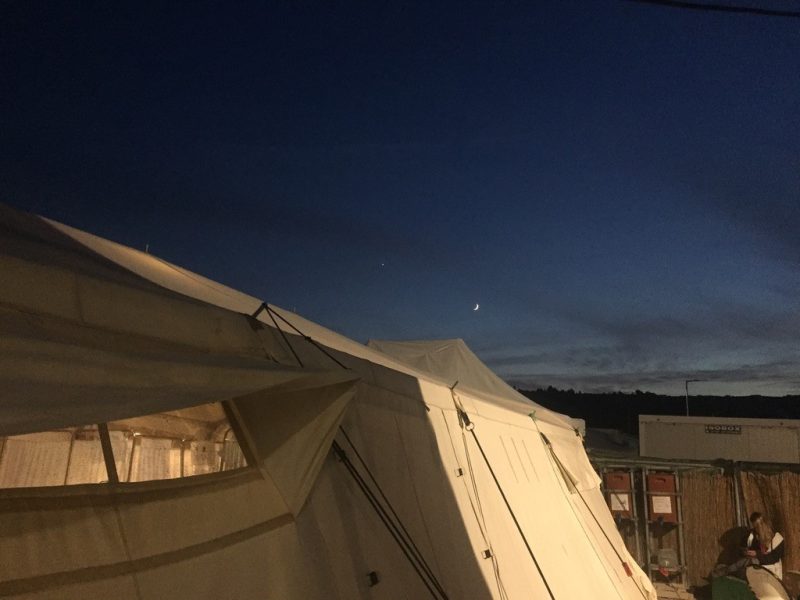
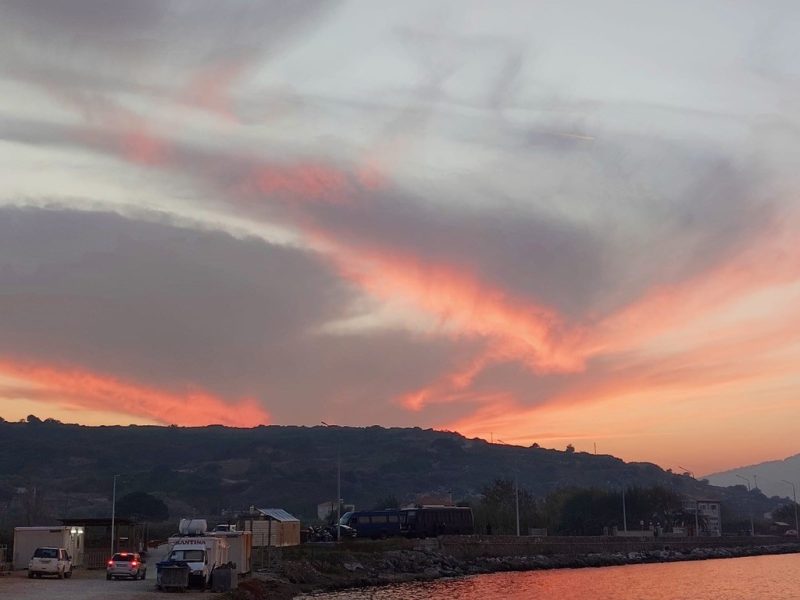
Future thoughts
During a previous visit to Lesvos in 2019, there were 20,000 refugees in the old refugee camp known as ‘Moria’. In 2021 there were only 3000 refugees in Mauravani. As I was leaving there were many discussions about building a ‘closed’ prison-like camp for those remaining. The creation of this centre is extremely political and the future position of all NGOs, including those providing medical care remains uncertain. Despite this, migrants continue to arrive, week by week, on Lesvos and its neighbouring islands, and there is still a great need for help.
If you would like to read more about volunteering in a European refugee camp, take a look at this recent article from Dr Laura Chapman. It contains a helpful list of links to articles of interest, as well as a number of medical actors on Lesvos and non-medical NGOs active on other Greek islands.

